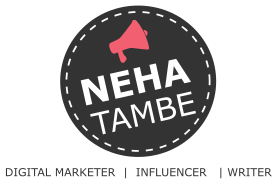Someone once said that there are no secrets on the internet and boy, were they right! The internet is a great tool for interacting and sharing information on a global scale, but it has also become a haven for harassment. With just a few clicks, it’s possible to dig up all kinds of information about anyone on the internet. The act of researching and publicly sharing private or personally identifiable information about someone online is known as doxing.
In a doxing attack, the perpetrators are looking for any information that might help them expose the identity of their target. This includes information such as home address, social security number, phone number, real names, photos, etc. Doxers may pull information about their targets from public databases, online directories, physical stalking, and social media profiles. Often, the goal is to harass or shame someone.
Ways to Avoid Getting Doxed
Incidents of doxing are common on social media especially when people in positions of power are caught behaving badly. However, it’s not always a public figure on the receiving end of a doxing attack. Ordinary people are increasingly falling victim to often misdirected doxing attacks. In an unfortunate case of mistaken identity, a University of Arkansas biomedical engineer was doxed for participating in a neo-Nazi rally.
Kyle Quinn’s life turned into hell for a moment there but he was eventually able to prove that he was not part of the torch-wielding marchers. We can’t all be that lucky. That’s why you need to take proactive steps to prevent this from happening. Here are a few tips to help you avoid becoming a victim of doxing.
Don’t Post Too Much Information
Limit the amount of information you share online to prevent doxing. While it’s not possible to remain completely anonymous on the internet, you can significantly reduce the information attackers can use to dox you. For starters, don’t post too much information about yourself on internet forums such as Reddit and Quora as well as social media platforms.

Protect Your Email Address
There are dozens of exciting online platforms out there. The problem is that most of them are doxing harvesting websites. If you want to visit these sites, you need to make sure that you don’t leave a trail of information about yourself. Create a temporary email for those websites that require an email address for registration.
Remove Personal Data from Your Applications
Some apps we use daily, such as Microsoft Office apps, allow us to put certain details about ourselves in the properties. This means that all the documents you send out there will have personal information such as your name. Look at the settings on all apps you use and remove any personal information.
Protect Data on Your Computer with Antimalware
Hackers may use spyware, a type of malware that infiltrates your computer and gathers information about your online activity and usage data. Install antimalware in your computing device to keep hackers out. Antimalware programs can monitor your computer to detect and remove any software designed to cause harm to your system.
Keep Your Browsing Private
A Virtual Private Network (VPN) is one of the most effective tools when it comes to staying aware from doxing and online stalkers. A VPN masks your IP address and encrypts your internet connection. With a VPN, doxers can’t use your IP address to find out your physical location or browsing activity.
Doxing is a form of online attack where someone digs up personal information about a particular individual to expose their real identity. The goal is usually to harass or shame the target publicly. Doxing tarnishes your reputation and can even lead to loss of employment. Use these tips to prevent yourself from getting doxed.

Though Doxing is new term to me but the aspect is well known. indeed protect our identity online is most important nowadays. the steps you had shared are really useful. it is best to avoid sharing too much personal update online. personally, I always do that.
hearing this term – Doxing for the first time; thanks for sharing a detailed article on this. Would be helpful to keep online identity safe
I too learnt about Doxing recently
The knowledge about the Microsoft docs carrying the personal details and hence condone doxing is new for me. I’m sure it is the same for many readers out there. Thanks for sharing this.
True Vaishali. Glad you found it useful
Super helpful post Neha, I do share very little personal infor online, oncluding address etc. I found your info on setting especially and eye opener. Keep sharing such relevent tips
Glad you found it useful
honestly, I never knew anything about this .. also the term Doxing was alien to me.. thanks for such an insightful post ..keep sharing such information in future too
Glad you found it useful Sonam
Doxing is a new word for me but the using and collecting ur information and data frm social media and off internet is a very common thing now a days and we need to be very vigilant in what we put on our social media.
Rightly said Hansa
This is really something new to me and I am happy to read and understand it from your post. Being on social media is easy and yet we need to understand the effects about it and how to be safe.
Corrent Ruchi. It is always better to be safe in knowledge
Honestly, the term fixing is new to me . Glad I came across to your post and came to know about it.
Yes Doxing was something I learnt about recently as well
Wow Neha, You have introduced to me a new terminology. We all know how Internet can be dangerous with regards to identity theft, data sharing, etc. Thank you for sharing the tips and tricks on how to prevent it. As a conscious person, we all need to be vigilant on the information we share in our social media. It’s scary to think that someone out there is tracking all the data we share in our social media.
True! Well said Amritha